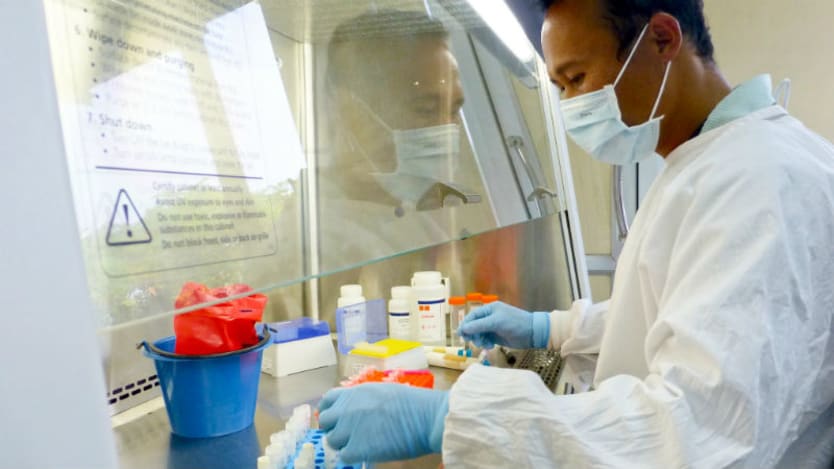
In addition to its human toll of more than 11,300 deaths, the Ebola epidemic of 2014 had hugely negative economic effects on West Africa. The World Bank estimated the overall impact on Guinea, Liberia, and Sierra Leone to be $2.8 billion, while a significant $3.6 billion — almost the entire GDP of Sierra Leone — was spent on the response.
And this was the cost of only one epidemic of many. The economic impacts of six major zoonotic disease outbreaks between 1997 and 2009 were estimated to be more than $80 billion globally.
But despite clear evidence of the economic harm epidemics can wrought, the future upfront funding of the Global Health Security Agenda (GHSA), a multilateral initiative to tackle global health threats, remains uncertain. And the main agency for U.S. health security, Centers for Disease Control (CDC) — which has triple the budget of the WHO — has recently seen its funding cut dramatically. Until the Senate responds to ongoing campaigns that aim to restore some of this funding, there will be reduced epidemic prevention in all but 10 of the CDC’s original 49 priority countries.
At the same time, global polio funding is also coming to an end. While the eradication of polio is worth celebrating, the fact that 90 percent of all WHO lab and surveillance funding in the Africa is connected to the disease leaves the organization at a crossroads. Eliminating this funding to support responses to future epidemics instead of prevention would be penny-wise, pound-foolish.
Health security goes beyond the absence of disease
The soon-to-be-launched Tackling Deadly Diseases in Africa Programme (TDDAP), led by the UK government, is an example of the renewed focus on universal health security that is coming at a critical time. But according to a recent review, the UK’s latest strategy for addressing global health threats has not yet resulted in other donors making significant investments. And given that the health care sector is generally under-funded by governments as compared to competing public expenditure requirements, it is likely many low-income countries won’t prioritize health security.
But the need to invest in new global health threats does not necessarily have to be linked to reduced spending on other health issues. HIV programs have shown that a focus on both priority diseases and health care systems can be complementary. In the last 20 years, a greater awareness of the human and economic impact of HIV has been used to galvanize multisector collaboration on universal health care.
Similarly, last December, the USAID- and PEPFAR-funded Health Policy Plus (HP+) project assisted the Mozambican government in developing an “investment case” for reproductive, maternal, neonatal, child, and adolescent health care investment. Two months later, $620 million from the Global Fund and World Bank was mobilized for overall primary health care. This has strengthened and improved the control of HIV, tuberculosis, and malaria, with a particular emphasis on laboratory tests and case finding.
Using costing models for greater collaboration
The global health threat we are faced with today encourages the use of costing models to measure the impact of epidemics on the economy as a whole. This is particularly relevant for health security, which requires shifting the agenda from the Ministry of Health to a more collaborative approach that spans across different sectors and players. The French writer Albert Camus once wrote: “The one way of making people hang together is to give 'em a spell of the plague.” We would hope that realistic forecasting and costing scenarios can achieve this before a devastating disease strikes.
In the short and medium term, the implementation of global health security processes will still be donor-reliant. But at the same time, we need to ensure that plans align with national budgets in order to facilitate the eventual transition to domestic funding. We also must ensure that all strategies support governments: enabling them to manage health security more effectively and giving them the opportunities to work closely with civil society. Ultimately, it is the government which is accountable for success or failure.
Comprehensive costing and impact assessments can draw attention to where urgent national priorities and the security agenda intersect. This intersection can serve as a starting point for resource mobilization and governance support, where donors fund critical infrastructure while governments progress towards universal health coverage in a virtuous cycle; one that can keep the world safer and people healthier.








